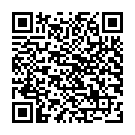|
|
|
| Module code: DFMEES-108 |
|
|
4PA (4 hours per week) |
|
4 |
| Semester: 1 |
| Mandatory course: yes |
Language of instruction:
German |
Assessment:
Seminar presentation
[updated 08.01.2020]
|
DFMEES-108 (P610-0133) Electrical Engineering - Renewable Energy and System Technology, Master, ASPO 01.10.2019
, semester 1, mandatory course, technical
E2503 (P211-0024) Electrical Engineering and Information Technology, Bachelor, ASPO 01.10.2018
, semester 5, mandatory course, technical
|
60 class hours (= 45 clock hours) over a 15-week period.
The total student study time is 120 hours (equivalent to 4 ECTS credits).
There are therefore 75 hours available for class preparation and follow-up work and exam preparation.
|
Recommended prerequisites (modules):
None.
|
Recommended as prerequisite for:
|
Module coordinator:
Prof. Dr. Benedikt Faupel |
Lecturer: Prof. Dr. Benedikt Faupel
[updated 16.10.2020]
|
Learning outcomes:
Within the framework of project work, solution strategies, suitable automation systems, tools and simulation tools for process automation problems will be specifically selected and prototypically implemented. Students will create their own solutions for sub-tasks that typically occur in the course of industrial automation projects. They will prepare and present their solutions didactically.
[updated 08.01.2020]
|
Module content:
1. Standards and guidelines for automation technology 2. Process identification methods 2.1. Analysis methods for identifying analog LTI systems 2.2. Least-squares method for identification of discrete LTI systems 3. Processing sensors/actuators in automation technology 3.1. Interfacing/information processing of sensors and actuators 3.2. Analog value processing with SPS (standardization) 3.3. How actuators function and operate 4. Automating sequence controls 4.1. Sequential function chart in control technology according to IEC 1131 4.2. Structure and function of recipe control 4.3. Realization of sequential programs for PLC with step chain programming and S7-Graph 5. Communication systems in automation technology 5.1. Serial communication 5.2. ISO/OSI layer model of communication 5.3. Fieldbus systems (Profibus, ProfiNet, ASI) 5.4. Networking PLC systems 6. Implementation of controllers on SPS 6.1. Designing control functions (two-point, three-point, PID controller) at function block level 6.2. Adaptation / integration of controller function blocks in practical applications
[updated 08.01.2020]
|
Teaching methods/Media:
Presentation, lab equipment, control engineering/process automation lab
[updated 08.01.2020]
|
Recommended or required reading:
Berger, Hans: Automatisieren mit SIMATIC S7-1500, Publicis MCD, 2017, 2. Aufl., ISBN 978-3-8957-8451-4 Grupp Frieder; Grupp Florian: MATLAB für Ingenieure, Oldenbourg, München, (latest edition) Schneider, Ekkehard: Methoden der Automatisierung, Vieweg, Braunschweig, 1999, ISBN 978-3528065669 Seitz, Matthias: Speicherprogrammierbare Steuerungen für die Fabrik- und Prozessautomation, Hanser, (latest edition) Wellenreuther, Günter; Zastrow, Dieter: Automatisieren mit SPS - Theorie und Praxis, Vieweg, Wiesbaden, (latest edition) Wellenreuther, Günter; Zastrow, Dieter: Automatisieren mit SPS - Übersichten und Übungsaufgaben, Vieweg, Wiesbaden, (latest edition)
[updated 08.01.2020]
|

